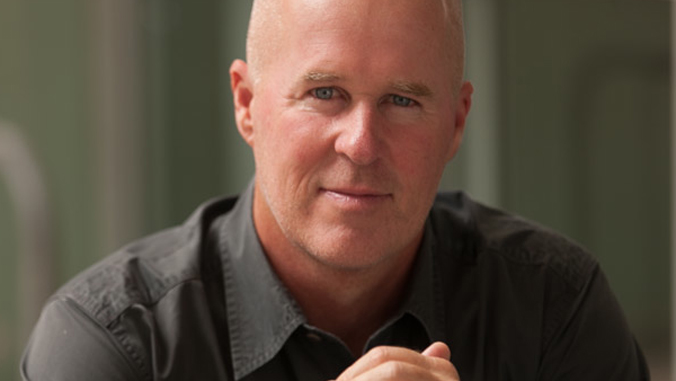
Matthew England is a renowned expert on large-scale climate-ocean dynamics. Hosted by the University of Hawaiʻi Better Tomorrow Speaker Series and the School of Ocean and Earth Science and Technology (SOEST), England will present an in-person lecture on how oceans protect humanity from rapid climate change—but with dire long-term consequences.
The presentation, Ocean as Protector—and Punisher: How oceans slow global warming but also sow disaster, is free and open to the public, and will be held on Tuesday, June 21 at 6 p.m. in the William S. Richardson School of Law, Classroom 2 on the UH Mānoa campus (register online). This event is offered with additional support from the Hawaiʻi Climate Change Mitigation and Adaptation Commission and Conservation International.
“The oceans are experiencing acidification, heating, deoxygenation, stratification, expanding dead zones, sea-level rise and pollution,” said Chip Fletcher, interim dean of SOEST. “Ocean life faces a stark future. Continued human development requires a healthy and resilient ocean. The science is clear, the solutions exist, the future of the human community on Earth is embedded in the decisions we make today.”
Earth’s vast oceans play a critical role in mitigating the worst effects of climate change. By absorbing heat and carbon, oceans slow atmospheric warming and moderate extreme climate variability. But these benefits have a whip tail. As oceans warm, acidify and expand, they are also starting to disrupt ecosystems, bleach coral reefs, melt ice caps, reshape coastlines and generate more severe hurricanes. In order to benefit from the oceans’ protection without experiencing generations of punishment, it is imperative that powerful countries, such as the United States and Australia, act aggressively to cut emissions.
“Hawaiʻi has ambitious goals to address climate change,” said Leah Laramee, interim coordinator of the State of Hawaiʻi Climate Change Mitigation and Adaptation. “It is now time for us to implement climate-smart actions and shift away from projects that will lock in carbon emissions for years to come.”
England, a Scientia Professor of Ocean & Climate Dynamics at the University of New South Wales, has led research studies from the tropics to Antarctica, and over time spans ranging from seasons to millennia. England is a fellow of the Australian National Academy of Science and a fellow of the American Geophysical Union. He also serves as the academic lead of the International Universities Climate Alliance.
The Better Tomorrow Speaker Series is a joint venture of UH Mānoa, the Hawaiʻi Community Foundation and Kamehameha Schools. Series sponsors also include the College of Social Sciences, Scholars Strategy Network, the William S. Richardson School of Law and the Ulupono Initiative.
For more information, visit Better Tomorrow Speaker Series or email btss@hawaii.edu.

